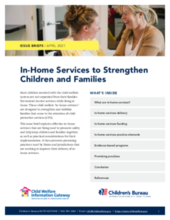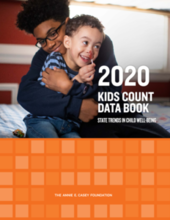Displaying 611 - 620 of 2503
A federal judge has ruled that the US government must release migrant children held in the country's three family detention centers by mid-July due to the coronavirus pandemic, according to this article from CNN.
This study presents findings from a systematic review of interventions that target successful reunification.
This article from the Atlantic explores the impacts of school shutdowns, social distancing, and lockdowns on children during the COVID-19 pandemic and how supportive caregivers can mitigate the harms of social isolation.
This article from the Chronicle of Social Change discusses how, in the United States, "states and counties that have come to rely on interdisciplinary legal representation – a model that includes social workers and peer advocates working alongside attorneys to fight for parents and children – have overcome the new barriers imposed by the pandemic to help families reunify."
This report provides key recommendations from three roundtable discussions about how to support permanency with kin, relational permanency, and successful older youth adoption.
This longform investigative article from CBC News explores the case of Serenity, a four-year-old girl who died in care, through an extensive review of court documents and interviews to seek to understand Serenity's life, and "what went so terribly wrong."
The 31st edition of the Annie E. Casey Foundation's KIDS COUNT® Data Book describes how children across the United States were faring before the coronavirus pandemic began. As always, policymakers, researchers and advocates can continue using this information to help shape their work and build a stronger future for children, families and communities.
This investigation applied contextual action theory and action-project method to the study of foster coparenting and the integration of children into the family.
In this piece for the Chronicle of Social Change, Vivek Sankaran writes about personal experience as a family defense lawyer and witnessing the racial disparity in the U.S. child welfare system, particularly in the racial bias in the discretion of child protective services (CPS) caseworkers.
This event, hosted by Disability Rights International (DRI) is the third in a webinar series on human rights of people with disabilities in light of the covid-19 pandemic.


